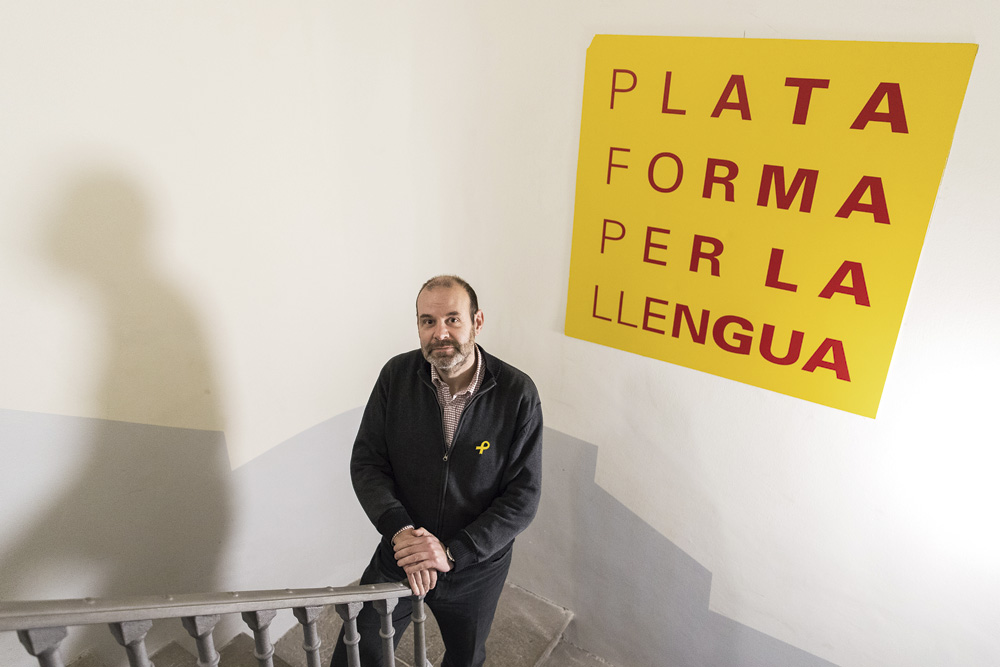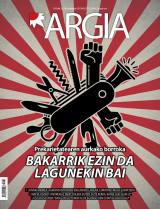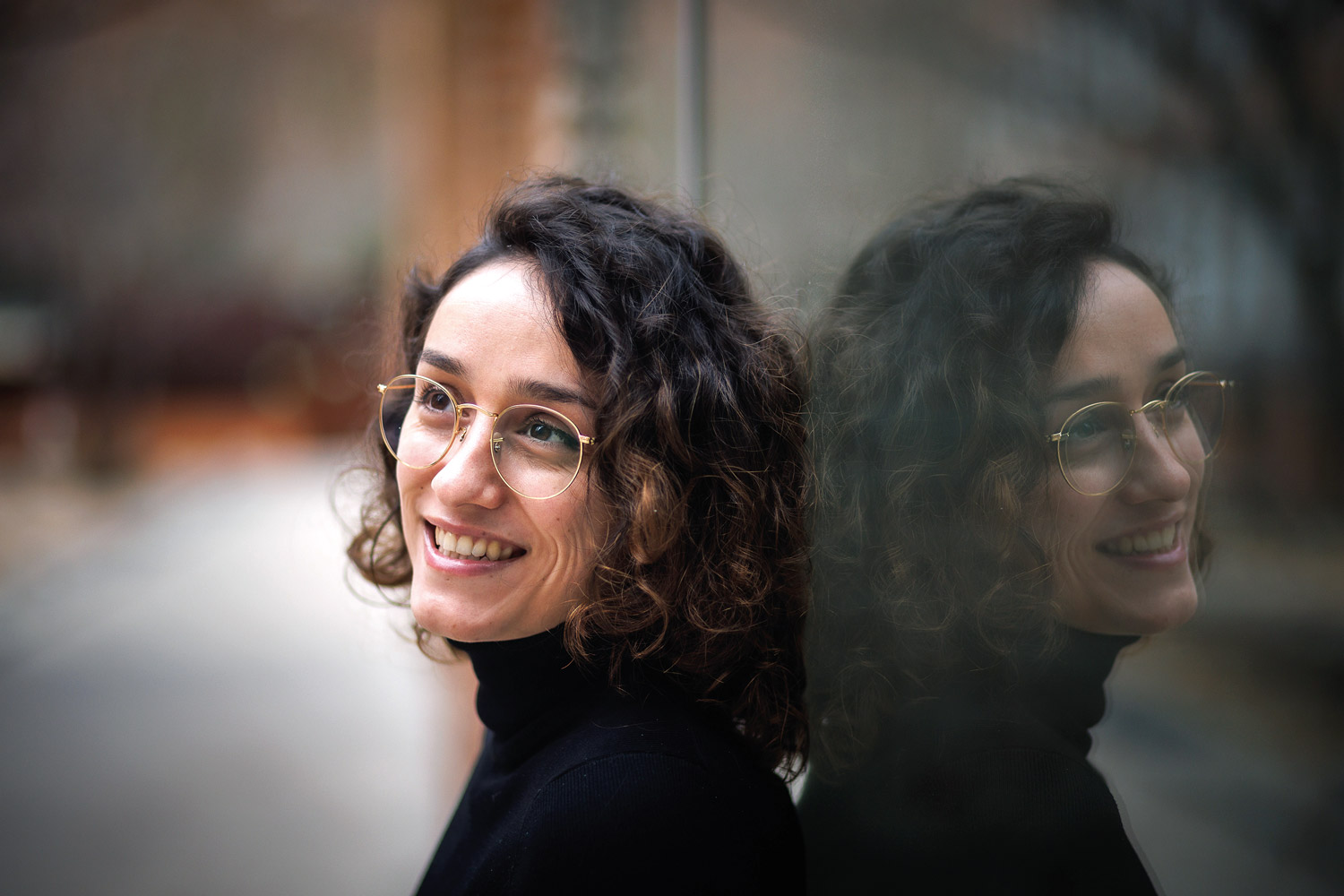"Spain is not going to change and the Catalans want to stop being an anomaly"
- The Plataforma per la Llengua partnership, which has now reached a quarter of a century, has 14,000 partners and aims to protect the rights of Catalans. It was not ten years ago that the association began to ask for a state of its own. The President of the Oscar Escuder Association explains to us very simply why: According to the laws of the Spanish state, the Catalans and the Catalan speakers should be respected. Since this is not the case in practice, it is proposed that a State should be set up to protect the rights of speakers.

You have stood in favour of a state of your own in order to protect Catalan. You have not always done so. When and why did they change their way of acting?
I don't have the exact date on my head, the decision we made within 8-9 years. Let's say that for about 16 years we haven't been clearly pro-independence. Why? Well, it's very easy. In theory, for the language to be fully recognised, for it to be the European language, for the Catalans to speak all rights, we do not need an independent state. In some states, in Canada, in Belgium, in Finland, there are far fewer people who speak a minority language than we are and their language rights are recognised.
Let me give you an example. You can ask anywhere in Canada to be judged in French and judged in French, nothing happens, nobody thinks Canada is going to break or something like that. The judge can insult the lawyer, for example.
The Spanish State has given up being our State as well. Although in theory it is not necessary, in practice every day we are being shown that Catalan is not going to be a normal language, that it is not going to make the way for Catalan speakers to have the same rights as those spoken in Spanish. As we want to be ordinary citizens, we want a state that is in favour, not against. I have talked about Canada, about Belgium and so on. These States are working their languages responsibly, democratically, fairly. Other states, instead of understanding their linguistic diversity as a wealth and as something to protect it, consider us a hindrance. They are the Spanish and French states. Spain is not going to change and we want to stop being an anomaly.
“If I were Basque, I would be independence”
With regard to the parliamentary elections, you campaigned very specifically and directly, with Rule 155 in your hand: Ez da toca. Is it common for your organization to conduct such campaigns?
It is not common, because the situation is not normal. We are not prepared to give in or act as if nothing had happened. In each election we have contacted the political parties and asked them for the linguistic objectives that we believe should be achieved in the next legislature. We are making a linguistic lobby with political parties, parliamentary groups and governments.
We campaigned for the referendum on 1 October. We asked for the vote in favour of Yes and the motto was A stat in favour. That is not the usual thing, no, but we have had a referendum, we have been given Article 155, and if it happens again, I think we will do something similar. Why have we acted like this? We are a linguistic institution and our objective is language.
Would I advise the associations and organisations working for the Basque Country, as you do, to maintain a clear position in favour of an independent state?
We already have enough work with us to tell others what they have to do. To say something, if I were Basque, it would be independence.
“Five or ten partners have abandoned the partnership since we
have opted for a state of their own.
We have 14,000 partners”
Has there been any consequence of the commitment to an independent state among the followers of the organisation?
We have 14,000 partners, workers and volunteers. In these years we have had some complaints, I have not counted them, very few have left the association four, five or ten partners.
Therefore, there is no partner in the association who thinks that it is not necessary to have an indelible state to normalize the language.
Another thing is in the political parties and in society in general, but I have told you how the reaction in our partnership has been.

What can be done to maintain in the fight for the normalization of Catalan those who do not feel the need for independence but do not feel the need for language?
Some have ceased to be partners, but that does not mean that we do not work for them. We work for everyone. I will rise to the level of the voters. Obviously, depending on the political programmes of the parties, we agree with the three parties that are betting on independence, but in addition to that is En Comú Podem, which defends the normalization of school and language, and the CSP, which in many ways have political differences, has always supported the school immersion system. Almost nobody who lives here and knows what happens here can tell you that there is a linguistic conflict. With the other two [pp and Citizens] it is more difficult. The other time they interviewed Inés Arrimadas on TV3 and as they talked about the school he said: “We defend a trilingual school that teaches Spanish, Catalan and English.” They complain about the current school model, but do not complain about other aspects in which Catalan is at a clear disadvantage. We have little to do with pp and citizens.
What kind of linguistic organization would the new republic have? What would be the status of each language?
It is clear that Catalan and Aranés are languages of Catalonia, each in its territory, because it is clear that Catalan is not the language of Arana itself. The language of another important percentage is Spanish. And 10% of those who live here speak neither of the valley, nor of Catalan or Spanish.
We do not want anyone to succeed in what has happened to us through the language, but we are also clear that Catalan should be a normal and official language, the ordinary one in use, in public institutions, in commercial relations… In any case, the time factor must be taken into account. On the day when the republic is proclaimed, things will not change from today, those who know Catalan today know it and those who do not know it will continue unknowingly. Products not labelled in Catalan will remain unlabelled. We are not going to throw anyone out of work because we do not know Catalan, but we will have to put the means in place so that those who do not know can learn. It is not a question of linguistic apartheid, let alone, even if we have been accused of it.
We want what should have been and has not been in the Spanish State to be in the Catalan repulsion.
In a republic where the official languages would be Catalan and the valley: “It’s not about making linguistic apartheid, let alone accusing us of it.”
You have not rounded up the subject of official languages.
Our proposal is that Catalan and Aranés should be official languages, but given that we are not going to throw anyone out of the house, they are as Catalan as I am. On this 10% of the foreign population, although it will not be our job, it is very important, as far as possible, that children with other mother languages learn these languages well and that learning is not left to the sole responsibility of parents. Its importance is due, on the one hand, to cultural and linguistic wealth and, on the other hand, to economic wealth. You have people who speak a lot of languages in the world; people who speak Chinese, Romanian, Arab, Amazon, the country is going to get better.
The new republic would take the Principat, and Catalan is spoken in other territories.
Directly or indirectly we work with people: Alguer, Andorra, Balearic Islands, Northern Catalonia, Western List and Valencian Community. With a favourable state, the improvement of circumstances in these territories will be easier. The situations are very different. Here we complain about labeling and in some countries where Catalans live, Catalan is not taught at school.
What would the relationship be like with the Aran Valley?
We say that the linguistic situation in Catalonia has to be decided by the Catalans and the linguistic situation in Arana will have to be decided by them. We will propose that we learn Catalan, Catalan, Spanish and English, and what serves us is also valid for them. It is sometimes said that the Catalan republic will be a binational republic, which will have Catalonia and Arán. That's right. We have every respect for plum and the will of the locals.
The Catalan linguist Carme Junyent died last September. We have followed closely what he said about language policy here, hoping that we will ever dare to implement some of his proposals. I was behaving without burnings. Many examples have been gathered in this journal: ARGIA... [+]
Frantsesa da nagusi, frantses instituzioetan. Haatik, urtez urte, erakunde publikoetan ere lekua egiten hasi dira euskara, korsikera edota bretoiera. Hemen, horren adibide ditugu, Ortzaizeko, Urruñako, Hendaiako edota Urepeleko herriko kontseiluak, baita Hirigune Elkargoa... [+]























